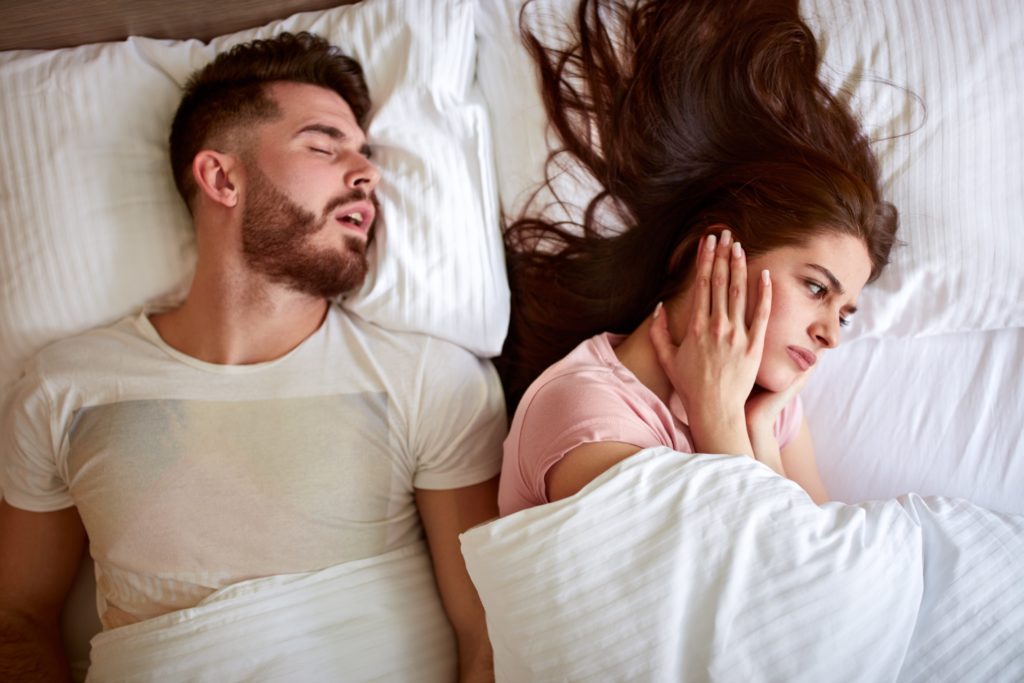Is Sleep Apnea in Richardson Keeping You Up at Night?
July 31, 2019

Are you sure you’re sleeping well through the night? One study estimates that nearly 1 billion people worldwide suffer from sleep apnea, a potentially dangerous disorder that causes the body to stop breathing while asleep; when that happen, the brain briefly wakes you up so that normal airflow can resume. Over the long term, you could suffer from severe health problems like heart attacks and depression. To avoid this, it’s important to know the signs and risk factors for sleep apnea in Richardson.
What are the Symptoms of Sleep Apnea?
While sleep apnea can cause you to awaken frequently throughout the night, each incident is so brief that you might not even remember it happening. You may, however, occasionally wake up out of breath and gasping for air, which should be taken as a sign that something might be wrong.
Sometimes nearby sleepers will know you have a sleeping disorder before you do. One of the most common symptoms of sleep apnea is loud, disruptive snoring sometimes followed by choking or silent breathing pauses. Unfortunately, people who live on their own might have a hard time realizing this is happening.
Other potential signs of sleep apnea include:
- Excessive drowsiness or fatigue during the day
- Insomnia
- Waking up with a headache or a sore throat
- Difficulty concentrating
- Irritability
- Memory problems
Not all of these symptoms will occur in every case of sleep apnea, and most of them (including snoring) can have other causes as well. The only way to confirm the presence of a disorder is by undergoing a sleep study performed by a professional.
What Can Put Me at Risk for Sleep Apnea?
Most cases of sleep apnea are caused by muscles near the back of the throat collapsing while you’re asleep, causing your pharynx to block the airway. Patients who are overweight are at a particularly high risk due to fatty tissues in the breathing passage leaving less space in general for the flow of air.
Men and postmenopausal women are more likely to experience sleep apnea, and the risk increases with age. Smoking, diabetes, asthma and high blood pressure may also play a role.
What Should I Do If I Have Sleep Apnea?
Once sleep apnea has been diagnosed, you can start receiving treatment. Many dentists can provide oral appliances that will reposition your jaw in a way that will help keep the airway open. This form of therapy is usually preferred over CPAP machines, which are very noisy and inconvenient while traveling.
The effects of sleep apnea get worse the longer the disorder is left untreated. If you suspect that there’s something stopping you from getting a good night’s rest, you should get a diagnosis immediately; the sooner the problem is identified, the sooner you can get back to having sweet, uninterrupted dreams!
About the Author
Dr. Mike Hamid Mirsepasi has been practicing dentistry since 1997 and offers a wide range of dental treatments, such as crowns for repairing broken teeth or whitening to get rid of stains and discoloration. He can also provide custom-made oral appliances to correct sleep apnea. To schedule an appointment at his practice, visit his website or call (972) 231-5744.
No Comments
No comments yet.
RSS feed for comments on this post.
Sorry, the comment form is closed at this time.
